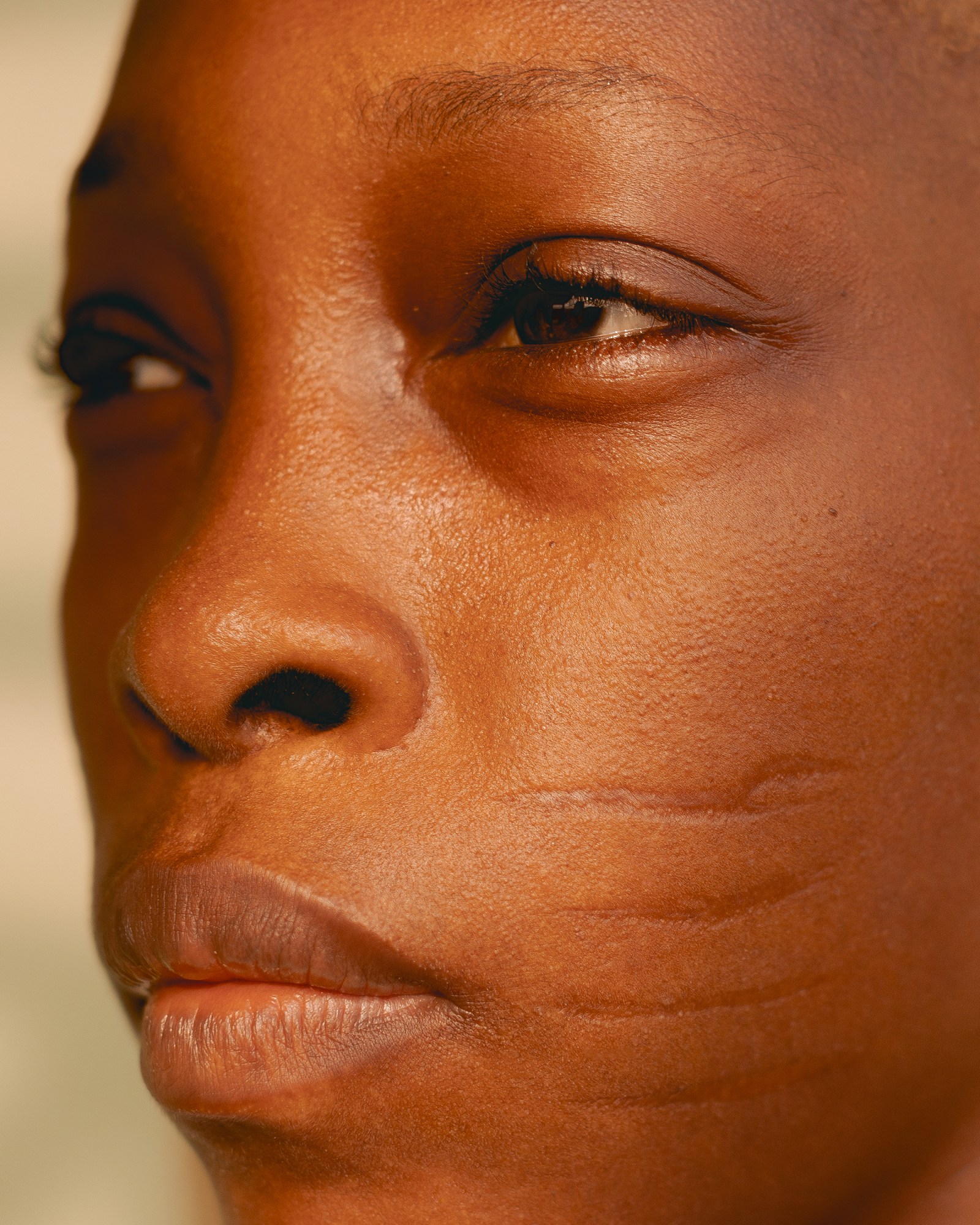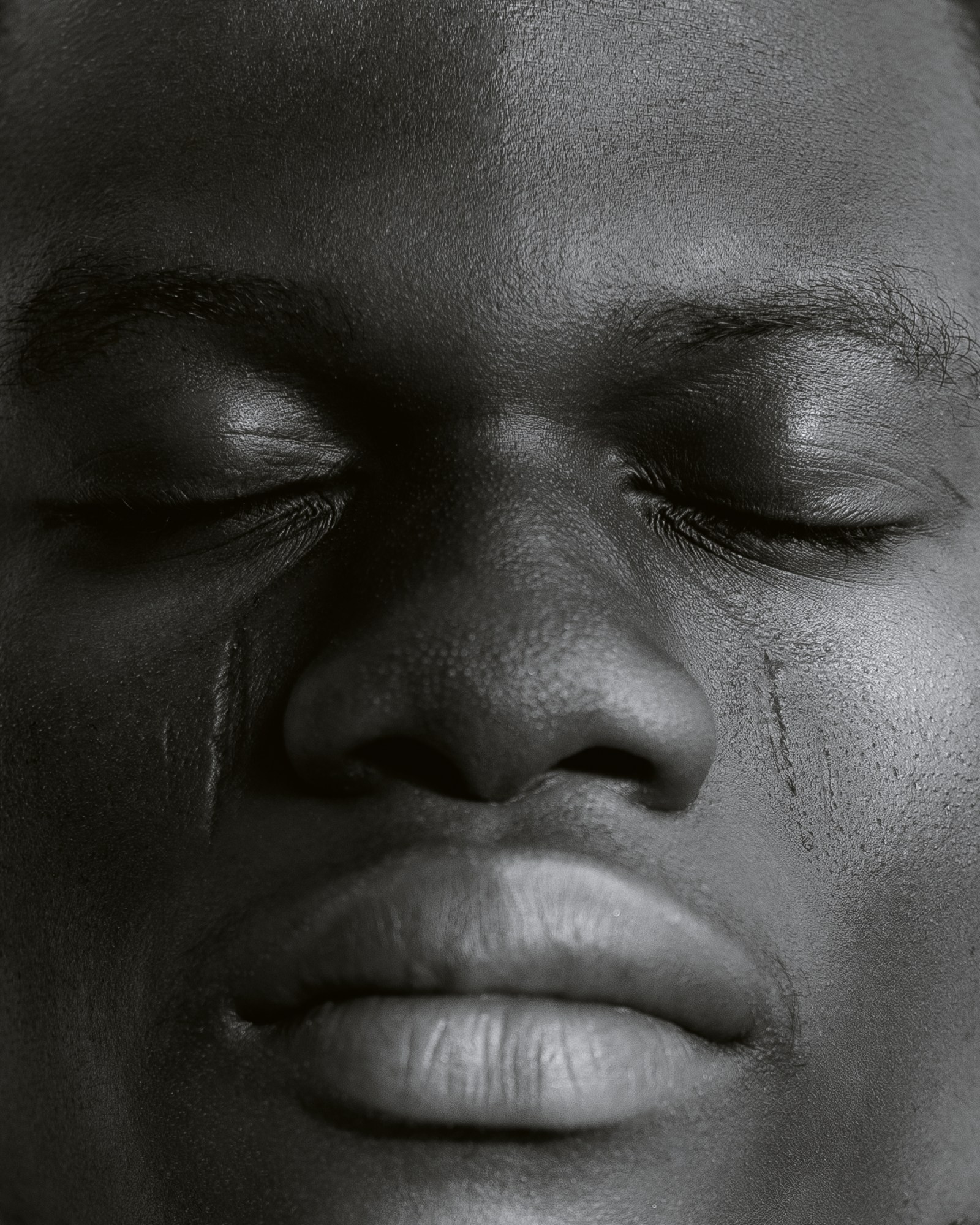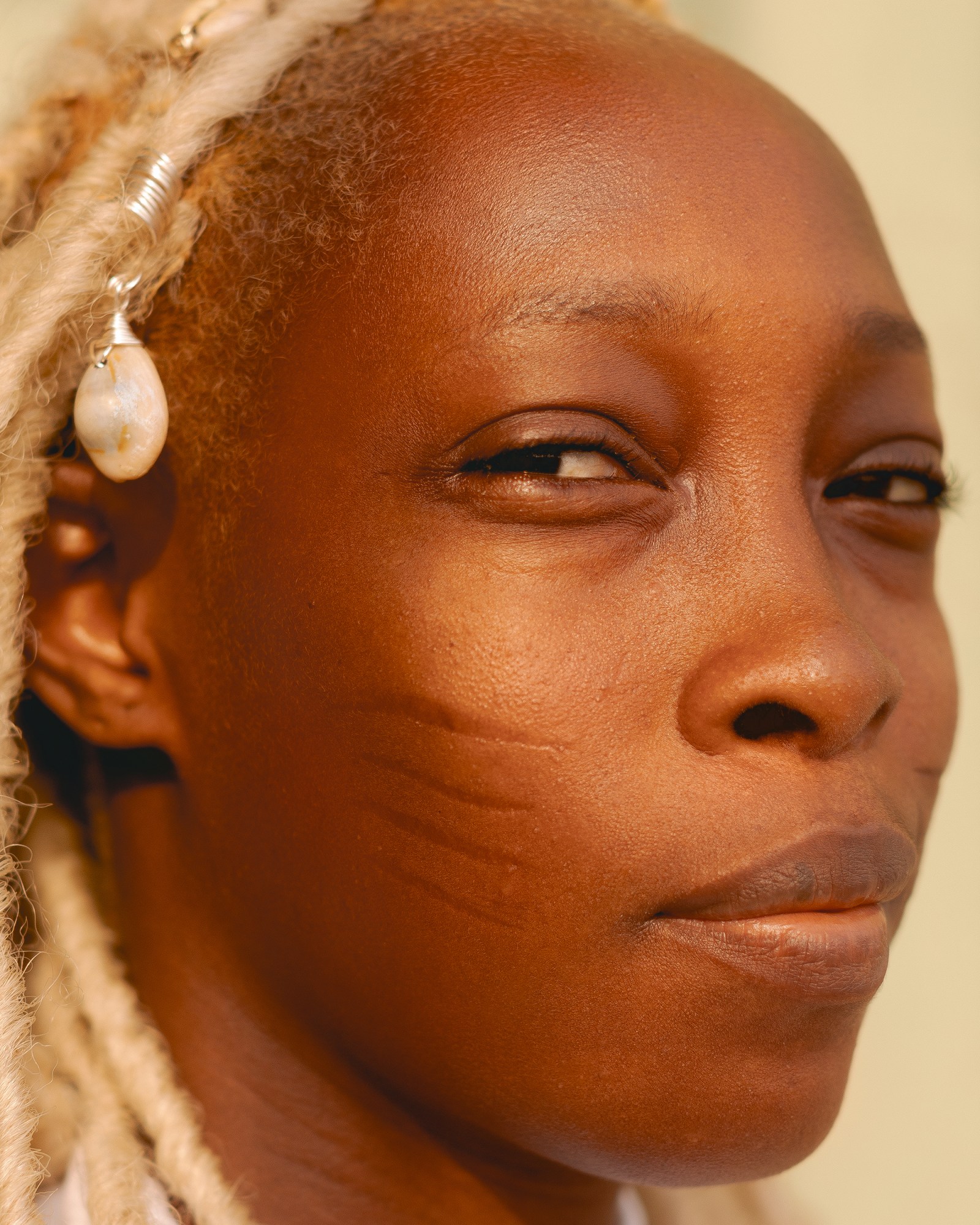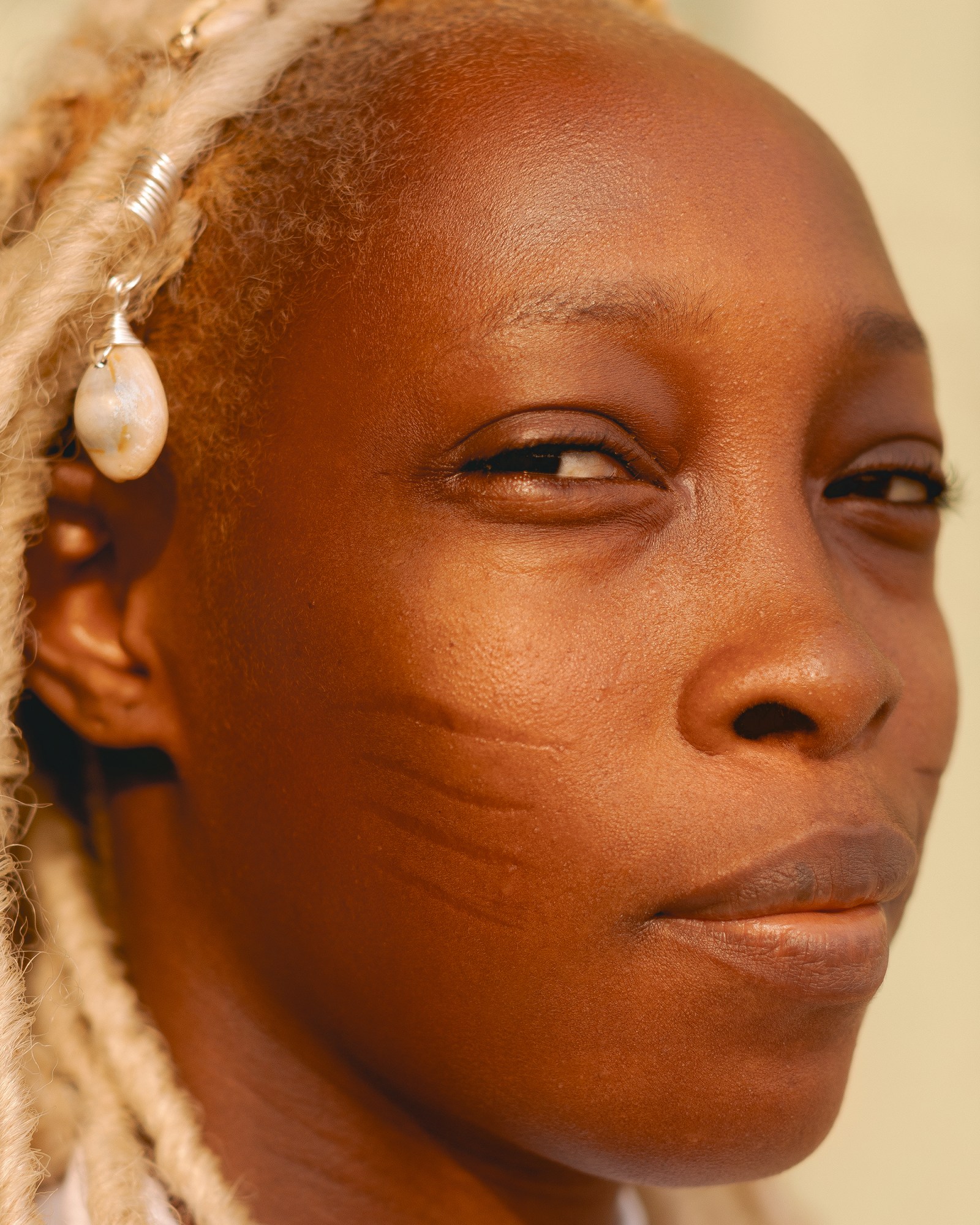In Yoruba culture, facial markings have been used for centuries to mark a person’s tribal heritage. The practise involves cutting and burning the skin with sharp objects and then adding black paste, usually from ground charcoal dust, to the open marks.
In countries on the continent other than Nigeria, the technique of creating facial markings is similar. And in countries like Benin, Burkina Faso, South Sudan, Ethiopia and Ghana, for example, it is not just the face that is scarred, but different parts of the body too, such as the back and stomach.
In the last 20 to 40 years, the negative effects on the individuals wearing and living with these scars — particularly those that cannot be concealed under clothes — have grown. Some Nigerians now consider these facial scars a violation of the carrier. The process of making them is usually carried out in early childhood — well before he or she can make a decision.
In 2017, the Nigerian Senate debated a bill that would prohibit facial mutilation and punish for those who perform it. While some individual state’s do prohibit the practise under certain laws, this bill hasn’t become a national law yet.
In late 2018, 32-year-old model and mother, Adetutu OJ Alabi created a hashtag on Instagram — #tribalmarkschallenge — which brought awareness to the realities of people living with facial markings, such as herself. Though the hashtag’s initial motive was to get the attention of Rihanna‘s Fenty brand — a brand Adetutu dreams of working with — the overall reception was so overwhelmingly positive that she kickstarted a new body positivity movement (and got her a @badgalriri follow in the process).
As someone with these markings myself, growing up, I was always anxious about how I looked. It took many years to come to terms with my appearance and accept myself and, to this day, I still have anxiety around meeting new people who are seeing me for the first time with these markings. So, after seeing Adetutu’s posts, I got in contact with her to discuss this much-needed body positivity movement.

What was it like growing up with tribal markings? Tell us a little bit about your background and your relationship with these markings.
I was born into a polygamous family. So finding my place in the family is hard. My parents were African traditionalists. Growing up, I was a shy child due to my tribal marks, they are obvious, and my siblings and I are the only ones with the markings [at school]. I got taunted and bullied for it all through my primary school to secondary school. I didn’t tell my father that I was bullied about it, but he got worried when I repeated classes twice. I had to tell him one day when we were having a father-daughter talk. I pleaded with him to stop giving the other children tribal marks because we are being bullied seriously in schools. The damage has been done, and I made up my mind not to go to university to avoid bullying. I left home to start a new life elsewhere, but I regret giving in to bullying and not furthering my education. Now I’m doing my best to give my daughter the best education. It’s not fun remembering my childhood because it gives me palpitations.
It has been two years since your campaign for facial markings commenced, what compelled you to start this?
I started the campaign because I am a diehard fan of RiRi. I love her aesthetics and want to be a Fenty model/muse. And I also want people with tribal markings like mine to come out of their shell and be bold. I have siblings and some fans looking up to me due to how boldly I post my tribal marked face, so starting that campaign means a lot to people like me with other body modifications and me.
Are attitudes changing?
I saw people’s attitudes start changing when I started the #adetutuotribalmarkschallenge. I asked people to draw my tribal marks on their faces and read the comments section of my posts. They saw the hurtful comments, and I started getting apologies in my DMs. In real life too, people stopped me and told they admired my boldness. I feel cool about changing that. The online bullying and trolling reduced, but I don’t think it can end. Some bullies don’t change.

You are still promoting the #tribalmarkschallenge on social media, urging individuals with facial markings to speak up and be visible. Could you talk a little bit about spreading this message to people who might need to hear it?
I can’t stop yet because some people with tribal markings are not confident enough bold to come online yet! I have to keep going, posting our faces and sharing with people who don’t know what tribal marks mean in each African country and tribe. I am doing my best to use what we have been taunted and bullied for and turn it into something artistic.
Despite the positive momentum, are there any particular challenges you still face?
There are challenges I still face. After the Rihanna recognition, I only got a few brand endorsements, which was short term; 3-6 months. Afterwards, I’ve had to really hustle to get paid gigs. I still get trolled and bullied sometimes, it doesn’t stop, but I do my best to delete the comments or ignore them. The challenges are still there.

Credits
Photography Manny Jefferson
